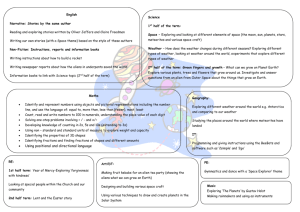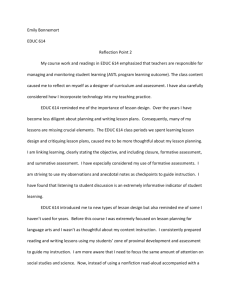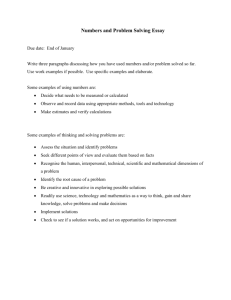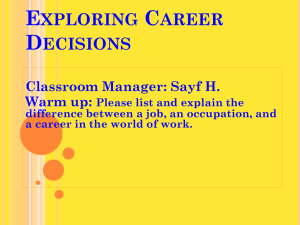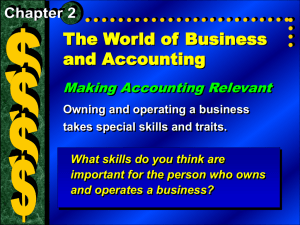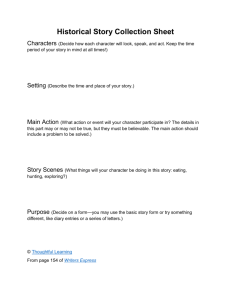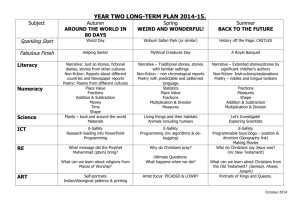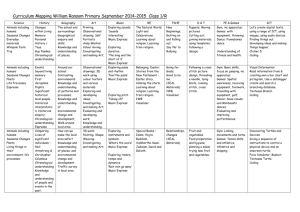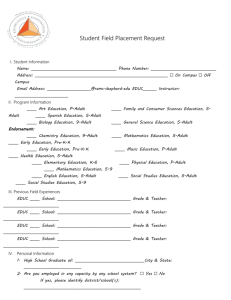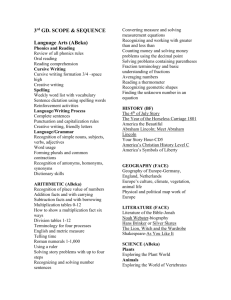HARFORD COMMUNITY COLLEGE EDUC 218 – Exploring
advertisement
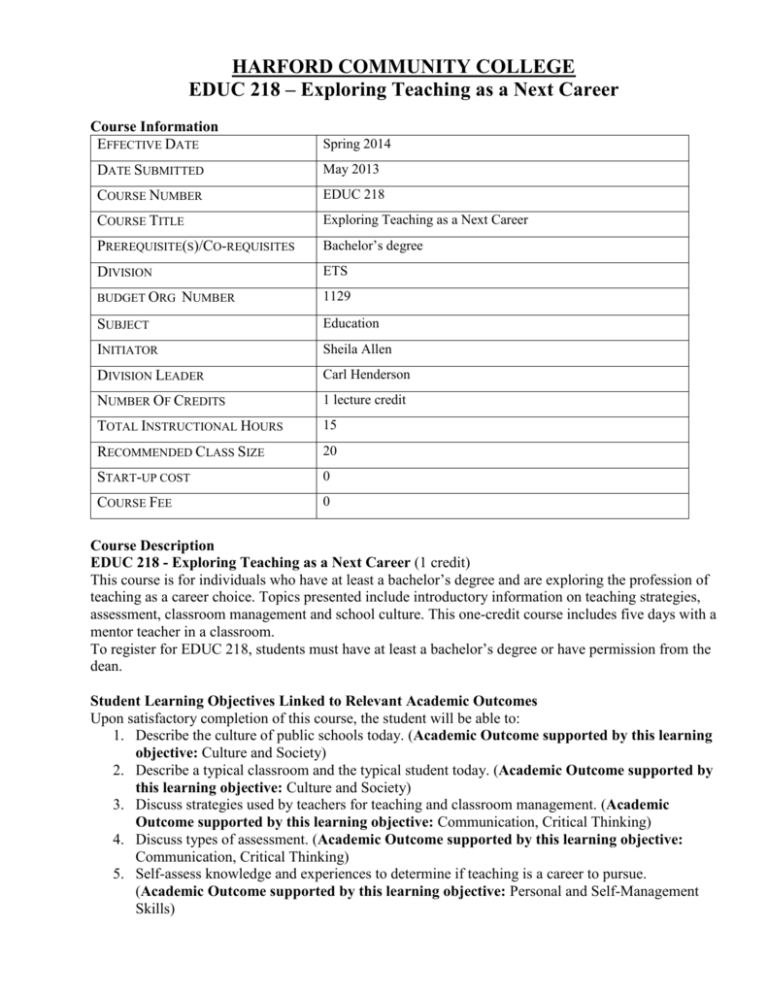
HARFORD COMMUNITY COLLEGE EDUC 218 – Exploring Teaching as a Next Career Course Information EFFECTIVE DATE Spring 2014 DATE SUBMITTED May 2013 COURSE NUMBER EDUC 218 COURSE TITLE Exploring Teaching as a Next Career PREREQUISITE(S)/CO-REQUISITES Bachelor’s degree DIVISION ETS BUDGET ORG NUMBER 1129 SUBJECT Education INITIATOR Sheila Allen DIVISION LEADER Carl Henderson NUMBER OF CREDITS 1 lecture credit TOTAL INSTRUCTIONAL HOURS 15 RECOMMENDED CLASS SIZE 20 START-UP COST 0 COURSE FEE 0 Course Description EDUC 218 - Exploring Teaching as a Next Career (1 credit) This course is for individuals who have at least a bachelor’s degree and are exploring the profession of teaching as a career choice. Topics presented include introductory information on teaching strategies, assessment, classroom management and school culture. This one-credit course includes five days with a mentor teacher in a classroom. To register for EDUC 218, students must have at least a bachelor’s degree or have permission from the dean. Student Learning Objectives Linked to Relevant Academic Outcomes Upon satisfactory completion of this course, the student will be able to: 1. Describe the culture of public schools today. (Academic Outcome supported by this learning objective: Culture and Society) 2. Describe a typical classroom and the typical student today. (Academic Outcome supported by this learning objective: Culture and Society) 3. Discuss strategies used by teachers for teaching and classroom management. (Academic Outcome supported by this learning objective: Communication, Critical Thinking) 4. Discuss types of assessment. (Academic Outcome supported by this learning objective: Communication, Critical Thinking) 5. Self-assess knowledge and experiences to determine if teaching is a career to pursue. (Academic Outcome supported by this learning objective: Personal and Self-Management Skills) 6. Identify requirements needed for Maryland certification.(Academic Outcome supported by this learning objective: Information Literacy) Course Outline I. CULTURE OF TEACHING A. Communities of Practice B. Education Terminology C. School Procedures D. School Organization II. ASSESSMENT A. Writing Objectives B. Types of Assessment C. Rubrics III. CLASSROOM MANAGEMENT A. Classroom Management B. Behavior Management C. Constructive Assertiveness D. Conflict Resolution IV. TEACHING STRATEGIES A. Student Differences B. Strategies for Differentiation V. ASSESSMENT A. Differences in School and Classroom Culture Among Schools B. Differences in Classroom Experiences C. Self-Assessment of Experiences and Future Goals Instructional Method(s) To achieve student learning objectives, instruction includes: lecture, discussion, field placement Assessment Method(s) Assignments include creating lesson plans, behavior management plans, classroom and school community activities, journals during the field placement and a final self assessment. Textual Material(s) Title: Author or Editor: Publisher: Date Exploring Teaching as Your Next Career Sheila Allen (custom edition) Pearson 2011


